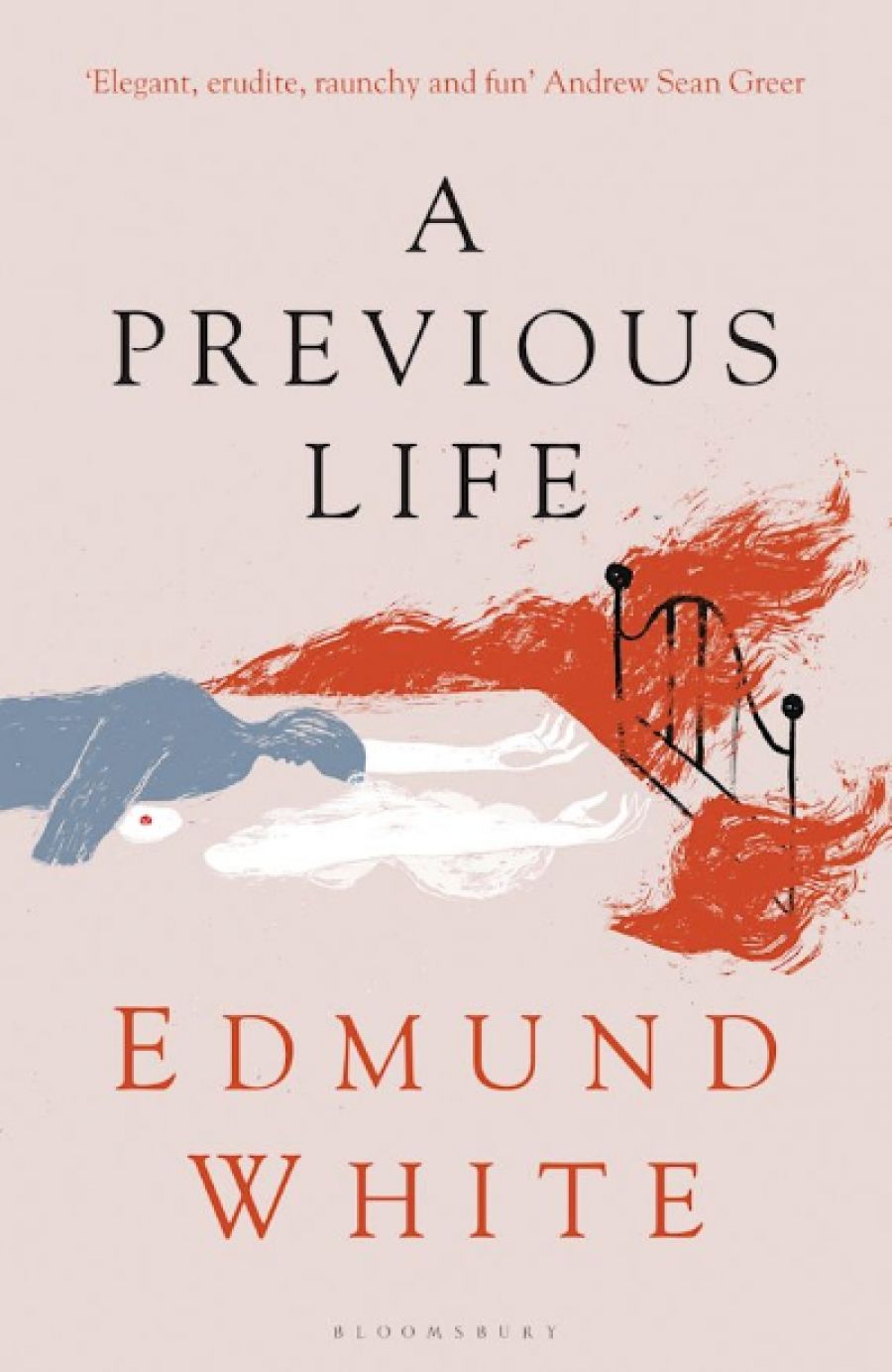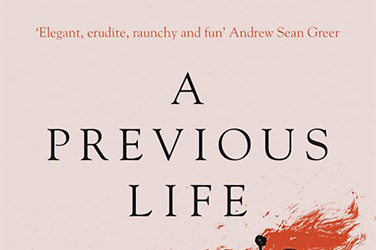
- Free Article: No
- Contents Category: Fiction
- Review Article: Yes
- Article Title: The impish slug
- Article Subtitle: Edmund White’s masochistic metafiction
- Online Only: No
- Custom Highlight Text:
What a performance this novel is! And not just in the virtuoso sense. What an exhausting mishmash of contradictions: snobbery, self-abasement, campery, stock masculinity. The whole pastiche is laced with vivid images of what it means to be finally old and ugly.
- Article Hero Image (920px wide):

- Article Hero Image Caption: Edmund White (photograph by Jeremy Sutton-Hibbert/Alamy)
- Alt Tag (Article Hero Image): Edmund White (photograph by Jeremy Sutton-Hibbert/Alamy)
- Featured Image (400px * 250px):

- Alt Tag (Featured Image): Robert Dessaix reviews 'A Previous Life' by Edmund White
- Book 1 Title: A Previous Life
- Book 1 Biblio: Bloomsbury, $29.99 pb, 270 pp
- Book 1 Readings Link: booktopia.kh4ffx.net/3PM9Ed
The main characters in this parodic romp all revel in belonging to an élite. This one imagines himself a literary nabob, this one even knows Susan Sontag, while another is a Sicilian aristocrat who fancies himself a world-famous harpsichordist (surely something of a paradox).
This tacky gaggle of would-be sophisticates all want to outshine their peers at whatever they do. In the case of the Sicilian, this means having the longest, thickest, most reliably erect penis anyone can remember chancing upon. They are obsessed with what people who matter in places that matter such as New York and the Île Saint-Louis (mysteriously misspelt, along with other words in a variety of languages), but not of course Phnom Penh, make of their performance. In short, they have a compulsive concern with style.
There’s a problem here. ‘Style,’ as Gore Vidal, a true patrician, once observed, ‘is knowing who you are, what you want to say, and not giving a damn.’ The octogenarian gay novelist Edmund White, who hails from a family of sexually deviant nobodies in Chicago, does indeed give a damn – or at least the octogenarian gay novelist called Edmund White at the centre of this novel does. Ruggero Castelnuevo, the virile Sicilian aristocrat in his prime who falls in love with this ‘fat, famous slug’, is rigid with status-anxiety from the first page to the last. Apart from anything else, postmodernly, he’s afraid he may be remembered chiefly not for his triumphs at the harpsichord but for ruining Edmund White’s life. Consequently, frantic to be stylish, they both come across as simply needy, narcissistic poseurs.
I’m not telling you anything here that Edmund White, the celebrated chronicler of life in gay America for half a century, the very inventor (he has claimed) of the genre of the gay novel, and admirer of Proust’s interminably meandering sentences, doesn’t know. One of the real pleasures of this occasionally repellent piece of masochistic metafiction is that Edmund White knows and anticipates everything. Before you can utter a word against any of the characters in the book, including Edmund White, or ridicule the Bad Sex Award sex scenes, Edmund White jumps ahead of you and says it far more wittily than you ever could yourself. A giant slug, yes, but also such an imp.
As the novel opens, the year is 2050 so that Edmund White can be dead (slumped on the toilet, like Elvis and possibly Catherine II). White did not bother to imagine a 2050 markedly different from 2020, although the Soviet-style political correctness and cancel culture we live with at present are but a faint memory. Ruggero, now in his seventies yet still fantastically svelte and priapic, is laid up with his wife and a broken leg in his Swiss chalet furnished with ‘priceless sidetables’– or is it in the Prince Bishop’s Schloss, with frescoes by Tiepolo? In the face of such an overworked canvas as White’s, it’s hard to recall – somewhere amusingly classy at any rate. He and his decades-younger wife, Constance, who is as tirelessly polyamorous as he is (‘all normal people are polyamorous’), decide to write their erotic confessions and then read them out to each other in digestible chunks to fill the empty hours. They actually sound remarkably like each other – in fact, everyone sounds pretty much like everyone else in this comedy of manners because they’re all ventriloquist’s dolls sitting on Edmund White’s knee – invoking high culture, not always sensibly. Ruggero, for instance, thinks Caravaggio’s Bacchus looks like a Neapolitan street boy who would do anything for a few lira. He doesn’t. (White presumably means Italian lire, not Turkish lira, but who can be sure?)
As White’s readers might expect, the confessions of Ruggero and Constance spiral around a love affair Ruggero once had with the famous gay writer Edmund White. There are endless accounts of the love lives of the libidinous Sicilian and his wife over many years – their adolescent experiments, the sexual abuse, their affairs with any number of partners in odd combinations, as well as these partners’ affairs with yet other lovers – each told in crisp, baroque, or at least rococo, detail. But the plumbline remains Ruggero’s brief, violent ‘dalliance’ with White.
In about 2018, Ruggero (who is fortyish) sends a fan letter to Edmund (who is eightyish). Eventually they meet and become a sadomasochistic couple, although sex with Edmund is like ‘being betrothed to an eel – all teeth and slime, except the teeth were falling out’.
We can see why Edmund might think all his Christmases had come at once: he’s an obese, impotent, disabled writer with a small penis, while Ruggero is a pornographic fantasy and upper-class to boot. Why this hunky polymath would call Edmund his wife for two years is less clear. Edmund thinks that being his ‘slave’ helps, since ‘slaves’ are ageless and always desirable because they’re ‘property’. No, they’re not, and it doesn’t take long, just long enough to cause great pain, for Edmund to find himself abandoned for being too old and unsightly. Thirty years later, Ruggero’s wife Constance leaves him for a younger man, however witty in several languages and beautifully dressed the Sicilian may still be.
For a brief time, quite recently, the real Edmund White did indeed have a Sicilian lover who played the harpsichord. It only matters because it raises the possibility that, with its ostentatious obscenity, it is basically a ‘vicious old queen’s’ revenge porn on a faithless lover. Or is it just an extravagant and over-long theatrical performance about celebrity, narcissism, and finally being old and disgusting? Not that it teaches us much we didn’t know: we already knew the old often stay concupiscent, if unlikely to inspire crazed lust in forty-year-old spunks, whatever line SilverDaddies may push on this.
White is doubtless acutely conscious of being thought old-hat by the 2020 literary taste-makers. He started well with his early novels, but he has bravely ignored the dictates of ‘queer’ academics. In this novel, with some flair, he has tried to outsmart the present gatekeepers, leaping right over the top of them to 2050.
The paradoxes are amusing enough. You can’t be a writer and also famous, White tells us, avid for fame. He also reminds us that you can’t be a performer and at the same time a ‘gentleman’. Can a subtle intellectual be an animal in bed? At the end of his career, White yearns to be all these things at once. And he is. That takes some flair.
In A Previous Life, however, his long-winded performance runs out of steam. Metafiction can be fun, but White is no Chaucer, Fowles, Pynchon, or Burgess. Sex, too, the dominant subject, can be enjoyable in old age, but reading about it in detail (the ‘silky foreskin sliding over the sticky mushroom head’ and so on), once erotic urgency has passed, is mostly ho-hum. White never asks himself if his readers might have stopped caring who did what to whom. He needs a defter touch.


Comments powered by CComment